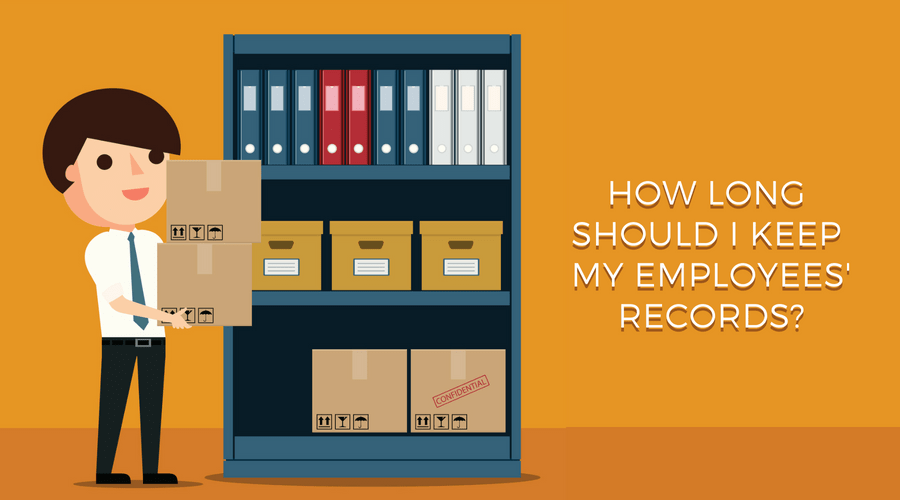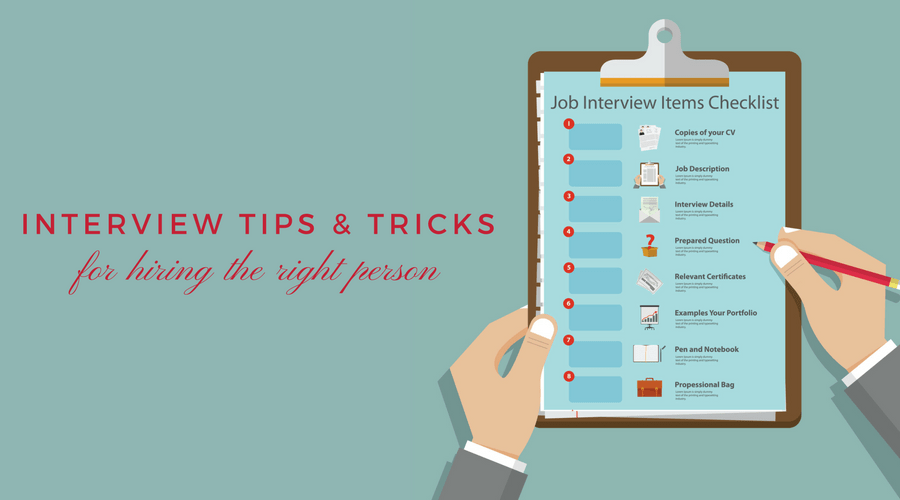How Long Should I Keep My Employees’ Records?

This article was last edited on 8/26/19. For updated information on storing employment records, visit the Department of Labor, Equal Employment Opportunity Commission, Occupational Safety and Health Administration, or IRS.
If you have even one employee or are planning on hiring someone soon, it’s essential to know how long to keep your staff’s records. Keeping this data will help protect your business and allow you to defend yourself if a former worker tries to sue you for something like wrongful termination. Federal, state, and local governments all have their own requirements, but keep reading to learn how long to keep employment documentation.
Hiring records
Keep all hiring files for at least one year after you’ve filled the position. Hiring information includes applications, resumes, and references. According to the Americans with Disabilities Act and Title VII, it’s illegal to discriminate during the hiring process. Saving hiring paperwork will protect you if someone who didn’t get the job decides to sue you.
Payroll records
Keep all payroll information for at least three years after a team member leaves your company, either voluntarily or involuntarily. This will show that you paid your staff fairly for the work they performed and that you complied with minimum wage and overtime laws.
I-9 forms
I-9 forms show that your employees are eligible to work in the United States. Keep them for at least three years after hiring a worker or at least one year after they have left your company, whichever is later. Store these forms separate from other records so you can quickly produce them if a government agency requests them.
Separation paperwork
If a staff member quits or is fired from your company, keep their separation paperwork for at least five years. Their separation paperwork could include resignation letters and exit interview notes. Keeping this information will help you prepare your defense if a former worker wants to sue you for wrongful termination.
FMLA paperwork
If anyone requests time off under the Family & Medical Leave Act (FMLA), keep that paperwork for at least three years after the worker leaves your company. Keep it even if you didn’t approve the request.
Drug test information
If you require drug testing during the hiring process, you’ll likely only have to keep the results for one year. But if your business is related to the transportation industry, you’ll probably have to keep drug test results longer. Due to Department of Transportation (DOT) safety regulations, any business involved in transportation may have to keep drug test records for at least five years.
Employment tax records
Keep all employment tax data, including wages, tip information, W-2 forms, and W-4s, for at least four years, just in case you get audited.
Health & safety records
The Occupational Safety & Health Administration (OSHA) requires you to keep all health and safety data for at least five years. These records include reports of workplace injuries or illnesses and should contain a brief description and any pertinent details. This information shows that your employees have a safe working environment and that you handled injuries correctly.
Unemployment insurance records
Each state has its own rules about how long to keep unemployment insurance information, but it could be anywhere from four to seven years. Learn more about your state’s payroll laws.


